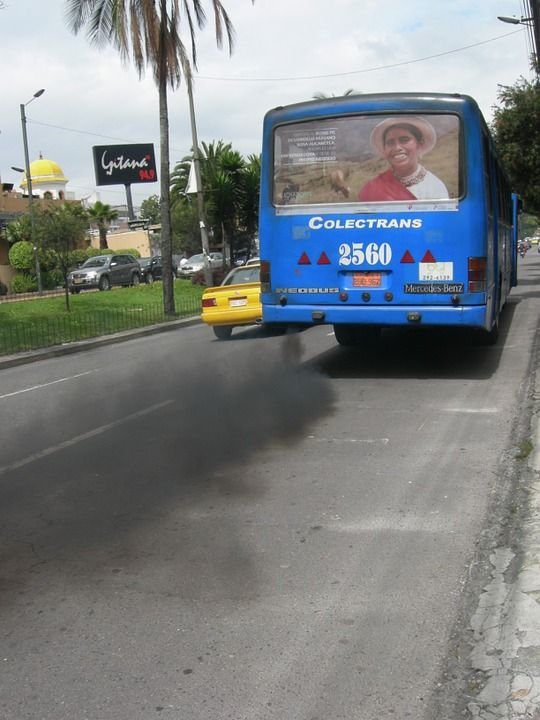No diesel: A costly revolution the car companies could do without
#16
if regulations were removed, people would suddenly not care about having a safe car?
#17
People would still worry. Not all. But car manufacturers would not always put the safety systems in cars if they didn’t have to. I seem to remember someone on here who argues that ABS are not needed or unsafe, so manufacturers will not add if they don’t have to.
#18
Of course, that doesn't mean that manufacturers, at the time, were not also guilty of some serious (and inexcusable) neglect, either, usually due to cost-cutting, such as with the Ford Pinto's frame-rail/gas-tank location and the general underpinnings/suspension of early versions of the Chevy Corvair.
One must also remember that much of the advance in vehicle-safety was not only in the vehicles themselves, but in safer roads. Flush guard-rails, the re-engineering of steep mountain grades and sharp curves, the advent of the Interstate highway system, safety-medians to lessen head-on collisions, cloverleaf interchanges, traffic-flow/control devices, more vigorous enforcement of DUI/DW laws, and many other advances also greatly helped.
......now, back to diesels.

Last edited by mmarshall; 03-01-18 at 07:56 AM.
#19
I strongly disagree with that. In the 1950s and early 1960s, before safety-standards were mandated, there was relatively little concern for vehicle-safety, despite vehicle-injury and death statistics that, in comparison to today, would look like a slaughterhouse. Ford offered seat belts, padded dashes, and flexible, collapsing steering columns in the mid-1950s as an option...very few takers. The ill-fated Tucker Torpedo of 1948 went even further than that...no dice. Even after the first wave of regulations were implemented, in 1971, Lincoln and the Chrysler Imperial offered, as an option, a primitive version of what would be today's ABS...again, very few takers. GM tried a few years later, in the mid-70s, with air-bags......well, you get the picture.
Of course, that doesn't mean that manufacturers, at the time, were not also guilty of some serious (and inexcusable) neglect, either, usually due to cost-cutting, such as with the Ford Pinto's frame-rail/gas-tank location and the general underpinnings/suspension of early versions of the Chevy Corvair.
One must also remember that much of the advance in vehicle-safety was not only in the vehicles themselves, but in safer roads. Flush guard-rails, the re-engineering of steep mountain grades and sharp curves, the advent of the Interstate highway system, safety-medians to lessen head-on collisions, cloverleaf interchanges, traffic-flow/control devices, more vigorous enforcement of DUI/DW laws, and many other advances also greatly helped.
......now, back to diesels.
Of course, that doesn't mean that manufacturers, at the time, were not also guilty of some serious (and inexcusable) neglect, either, usually due to cost-cutting, such as with the Ford Pinto's frame-rail/gas-tank location and the general underpinnings/suspension of early versions of the Chevy Corvair.
One must also remember that much of the advance in vehicle-safety was not only in the vehicles themselves, but in safer roads. Flush guard-rails, the re-engineering of steep mountain grades and sharp curves, the advent of the Interstate highway system, safety-medians to lessen head-on collisions, cloverleaf interchanges, traffic-flow/control devices, more vigorous enforcement of DUI/DW laws, and many other advances also greatly helped.
......now, back to diesels.

Allowing cities to ban diesels is a good thing for the city. Let the city make that decision
#21
I'm at the point that the level of VW cheating deserves the "death penalty". No more VW sales in the US ever! Germany created this monster and will keep the company in business if only for the political issues. The rest of the world should not keep them in business. We may never know how many American lives were lost due to the foul emissions from the cheater VW diesels.
#22
#24
Okay, my understanding is that new diesels have gotten a LOT cleaner over the past decade or so.
So are these cities and courts proposing banning the sale and use of even these clean diesels? If so, why?
Are car companies saying they won't be producing even the newer clean diesels? Why?
It's my impression that my RX450h is very comparable to a diesel-powered RX350 (if one were produced) in terms of mileage and pollution. And I assume that a diesel engine is somewhat more expensive than a comparable gasoline engine, so perhaps the cost of a hybrid RX450h would be comparable to an RX 350 diesel. If so, then by going hybrid we get substantial increased complexity but no more diesel odor. Is that the trade-off?
So are these cities and courts proposing banning the sale and use of even these clean diesels? If so, why?
Are car companies saying they won't be producing even the newer clean diesels? Why?
It's my impression that my RX450h is very comparable to a diesel-powered RX350 (if one were produced) in terms of mileage and pollution. And I assume that a diesel engine is somewhat more expensive than a comparable gasoline engine, so perhaps the cost of a hybrid RX450h would be comparable to an RX 350 diesel. If so, then by going hybrid we get substantial increased complexity but no more diesel odor. Is that the trade-off?
#25
It's my impression that my RX450h is very comparable to a diesel-powered RX350 (if one were produced) in terms of mileage and pollution. And I assume that a diesel engine is somewhat more expensive than a comparable gasoline engine, so perhaps the cost of a hybrid RX450h would be comparable to an RX 350 diesel. If so, then by going hybrid we get substantial increased complexity but no more diesel odor. Is that the trade-off?
#27
Okay, my understanding is that new diesels have gotten a LOT cleaner over the past decade or so.
So are these cities and courts proposing banning the sale and use of even these clean diesels? If so, why?
Are car companies saying they won't be producing even the newer clean diesels? Why?
It's my impression that my RX450h is very comparable to a diesel-powered RX350 (if one were produced) in terms of mileage and pollution. And I assume that a diesel engine is somewhat more expensive than a comparable gasoline engine, so perhaps the cost of a hybrid RX450h would be comparable to an RX 350 diesel. If so, then by going hybrid we get substantial increased complexity but no more diesel odor. Is that the trade-off?
So are these cities and courts proposing banning the sale and use of even these clean diesels? If so, why?
Are car companies saying they won't be producing even the newer clean diesels? Why?
It's my impression that my RX450h is very comparable to a diesel-powered RX350 (if one were produced) in terms of mileage and pollution. And I assume that a diesel engine is somewhat more expensive than a comparable gasoline engine, so perhaps the cost of a hybrid RX450h would be comparable to an RX 350 diesel. If so, then by going hybrid we get substantial increased complexity but no more diesel odor. Is that the trade-off?
But diesels in Europe (specifically, the European Union) were not subject to the same, stringent NOx and PM emissions. The EU was more concerned about CO2 emissions (which is dependent upon fuel efficiency) than dirty pollution, and since diesel cars are much more fuel efficient than gasoline cars, diesel was favoured.
The newest Euro 6 diesel emissions standards are much better but still do not quite match American diesel emission standards. The automakers have found it much easier to meet Euro standards than American standards. VW's small diesels could meet Euro standards without the diesel exhaust fluid but we find out now -- after the Dieselgate scandal -- that they really should have used the exhaust fluid in North America.
As a result, there are a lot of dirty Euro 1 to Euro 5 diesel cars on the streets in the EU. European cities are now trying to ban the use of diesels -- especially the older, dirtier models -- from their streets.
Hybrid gasoline-electric vehicles are very clean, pollution-wise, cleaner than straight gasoline vehicles (which are cleaner than diesel vehicles). Fuel efficiency of hybrid vehicles tend to be better in stop-and-go city driving than diesel vehicles (because hybrids may switch off the engine when not needed) but may not be as fuel efficient as diesel vehicles in highway driving.
#29
#30
I am thinking that a driving ban imposed by cities can be brought into effect much more quickly than changing fuel pump taxes on gasoline and diesel fuel. Municipal politics is usually much more quickly enacted than state or federal politics (I am assuming that fuel pump prices are imposed at the federal or state level).






 And the second appears to be a gasser with a blown head gasket or stuck injector, not a diesel at all. But yeah, not a fan.
And the second appears to be a gasser with a blown head gasket or stuck injector, not a diesel at all. But yeah, not a fan.
